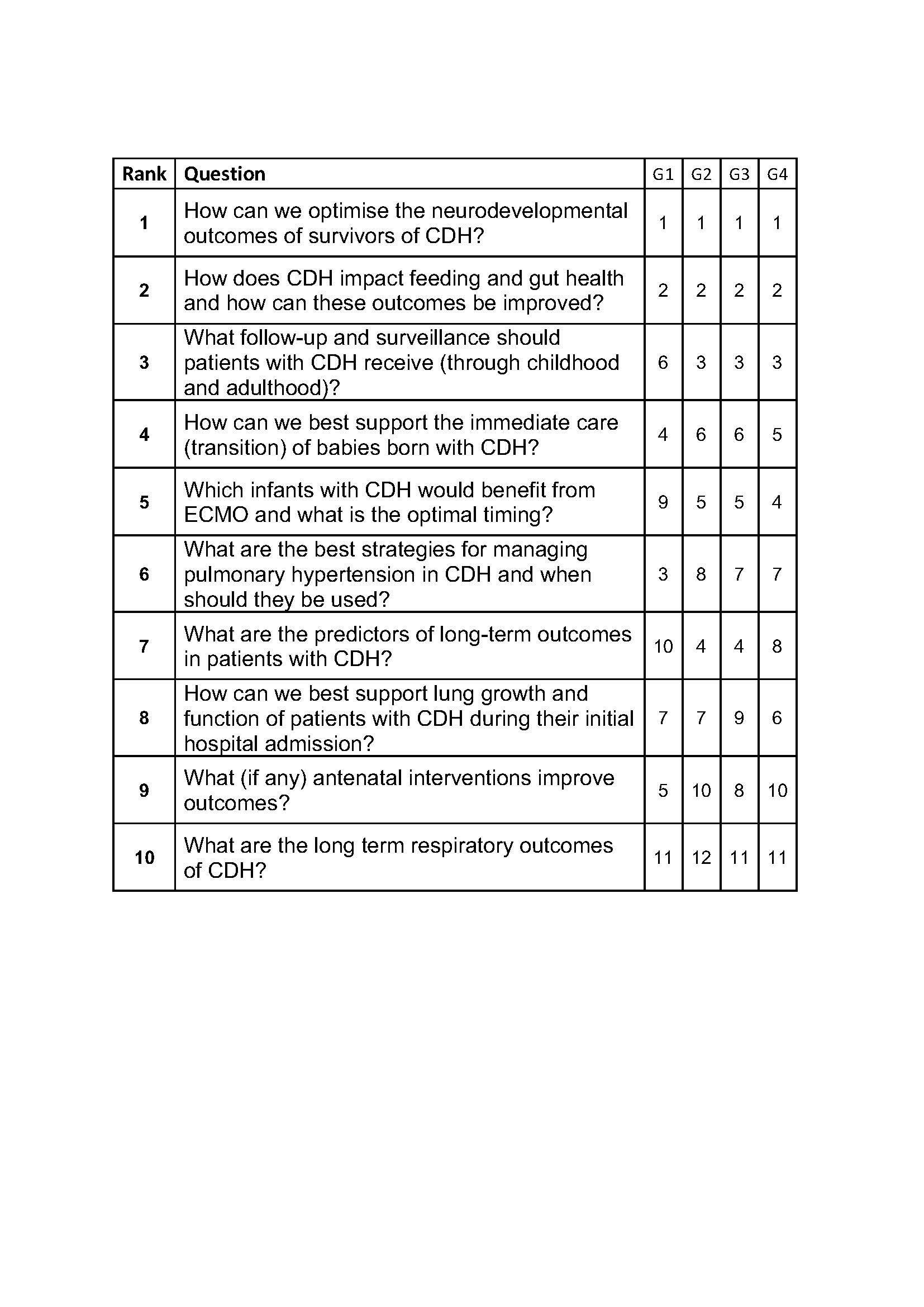Neonatology
Session: Neonatal General 5: PDA, Surgical Conditions, Infections
141 - Gaps in the CDH Journey: Research priorities for Congenital Diaphragmatic Hernia
Sunday, May 5, 2024
3:30 PM - 6:00 PM ET
Poster Number: 141
Publication Number: 141.2103
Publication Number: 141.2103

Trisha Prentice, PhD (she/her/hers)
Neonatologist
The Royal Children's Hospital
North Melbourne, Victoria, Australia
Presenting Author(s)
Background: Congenital Diaphragmatic Hernia (CDH) is a rare developmental defect of the diaphragm that allows herniation of abdominal contents into the thorax during fetal development. It is associated with perinatal death and long-term morbidity across multiple speciality disciplines. Improving clinical management and patient outcomes requires a collaborative multidisciplinary research approach that prioritises the needs of all stakeholders.
Objective: To establish the top 10 research priorities for CDH as determined by CDH survivors, families of children with CDH (including bereaved) and multidisciplinary healthcare professionals.
Design/Methods: The Gaps in the CDH Journey Priority Setting Partnership (PSP) was developed in collaboration with the Australian national support group CDH Australia (CDHA) and the Murdoch Children's Research Institute (MCRI) with support from the James Lind Alliance (JLA). Standardised research priority setting methodology was used to provide an open, fair and transparent process. Two rounds of research question generation and prioritisation occurred through open online surveys, directed to families of babies born with CDH (including bereaved), CDH survivors and healthcare professionals. Surveys were distributed through social media, support and professional networks and conferences. Questions were removed if they had been answered through systematic or Cochrane reviews or were deemed unanswerable research questions (e.g. reflecting personal circumstances or were a statement rather than a question). The top 21 questions were prioritised at a final workshop involving CDH survivors, parents (including bereaved) and healthcare professionals, into a list of top 10 research priorities.
Results: 175 participants submitted 377 questions through a community-based online survey. These were categorised and collated into 50 research questions that sought to capture the original questions in lay language. Through a further prioritisation process involving 108 participants, 21 questions were discussed at a prioritisation workshop where they were ranked by 22 participants (CDH survivors, parents and 11 multidisciplinary healthcare professionals) into their top 10 research priorities (Table 1). These research priorities highlight not only the importance of improving acute care management, but direct attention to long-term morbidities that impact the quality of life of survivors and their families.
Conclusion(s): Stakeholders' involvement identified the top 10 CDH-related research questions, spanning from antenatal care to long-term functional outcomes, that should be prioritised for future research.

